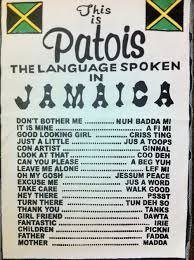patois
英 [ˈpæt.wɑː]
美 [ˈpæt.wɑː]
- n. 方言,土语;行话
- n. (Patois)人名;(法)帕图瓦
星级词汇:

记忆方法
将“patois”分解为“pa-toy”,可以将其想象为“pat”在“toy”上跳跃。这种跳跃的动作可以形象地联想到这种语言(克里奥尔语)在特定地区或群体中随意、轻松地使用的情景,帮助记忆“patois”这个词。
以上内容由AI生成, 仅供参考和借鉴
中文词源
patois 方言,土话
来自中古法语patois,方言,来自古法语patois,粗鲁的语言,来自pate,脚掌,脚底板,词源同pad,path.-ois,表语言。比喻用法。
英语词源
- patois (n.)
- "a provincial dialect," 1640s, from French patois "native or local speech" (13c.), of uncertain origin, probably from Old French patoier "handle clumsily, to paw," from pate "a paw," from Vulgar Latin *patta (see patten), from notion of clumsy manner of speaking. Compare French pataud "properly, a young dog with big paws, then an awkwardly built fellow" [Brachet]. Especially in reference to Jamaican English from 1934.
权威例句
- 1. A substantial proportion of the population speak a French-based patois.
- 人口中有一大部分说以法语为基础的混合语。
- 2. In France patois was spoken in rural, less developed regions.
- 在法国,欠发达的农村地区说方言。
- 3. He speaks the local patois.
- 他会说当地方言.
- 4. Patois cannot be neglected if we wish to study the history and languages of Macao.
- 研究澳门的历史和语言,土生葡语是不可忽略的一部分.
- 5. As a patois , or colloquial , slang is permeated with rich local color and flavor.
- 俚语是通俗的口头语,带有浓郁的地方色彩和民间韵味.
